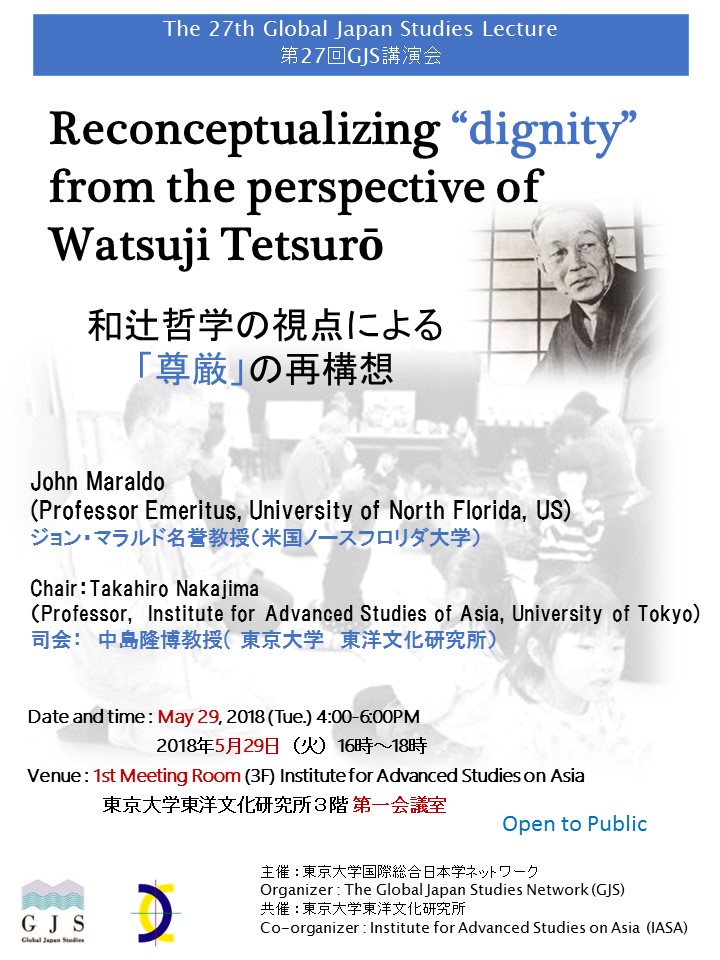The 27th GJS LectureReconceptualizing "Dignity" from the Perspective of Watsuji Tetsuro
| Date and time: | May 29, 2018 (Tue.), 4:00-6:00PM |
|---|---|
| Venue: | 1st Meeting Room (3F), Institute for Advanced Studies on Asia, The University of Tokyo |
| Speaker: | John Maraldo (Professor Emeritus, University of North Frolida, US) |
| Language: | English |

Abstract: The modern concept of dignity underlies declarations of human rights as well as international norms of social behavior. Yet this complex concept makes assumptions about the nature of being human that are both unnoticed and questionable. A comparison and contrast with Watsuji’s notion of ningen (人間) brings to light the assumption that human beings, as inherently endowed with dignity, are first and foremost individual persons. Although Watsuji makes only a few remarks about his reflections on songen (尊厳)or dignity in his Ethics, a critical appropriation of his perspective can offer a corrective to that assumption and a way to better understand human interactions in other cultures. Part of the complexity of the widespread notion of dignity is that, since Kant, the notion in many languages is ambiguous. It refers both to an inherent quality of all human beings and to an elevated status or position (as in being dignified or dignifying someone by virtue of some contingent quality). What is more, both meanings are related to the notion of respect. But the sense of an equal, inborn quality in each and every human being emphasizes the autonomy of the individual, whereas the notion of respect emphasizes our relationship with others Dignity is thought to be each person's own; respect is something people give one another.I will expose the deeper ambiguity in most current philosophical discussions of dignity that imply both individual autonomy and dependence on others. What happens to dignity, however, when people—human beings—are conceived as inherently relational? This is the question I will pursue in my keynote address. To appropriate Watsuji’s conception of being human (ningen), however, will require that we correct his own tendency to conceive human beings in hierarchical terms and to place increasing value in greater totalities like the nation-state. It will also require an alternative sense of autonomy that is relational and seemingly in conflict with current notions of songen in Japanese social practices, such as the care of the elderly and the dying. And it will have consequences for negative approaches to understanding dignity, that is, for clarifying its meaning by examining its violation and the circumstances of treating others inhumanly. In short, to extrapolate from Watsuji, I propose that dignity and respect, 尊厳 and 尊敬, are co-originating.
Organizer: The Global Japan Studies Network (GJS)Co-organizer: Institute for Advanced Studies on Asia, the University of Tokyo
Contact: gjs[at]ioc.u-tokyo.ac.jp



